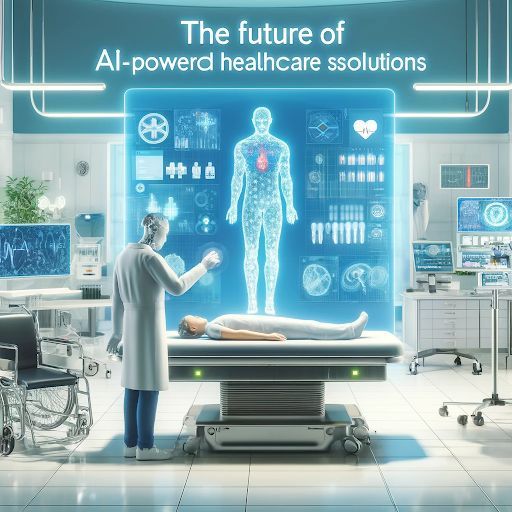Artificial Intelligence (AI) is revolutionizing various industries, and healthcare is at the forefront of this transformation. The integration of AI in healthcare promises to enhance diagnostics, personalize treatment plans, and improve patient management. This article delves into the latest AI applications in healthcare, exploring their potential impacts on both providers and patients.

Advancements in Diagnostics
AI-powered diagnostic tools are transforming how diseases are detected and diagnosed. Machine learning algorithms analyze vast amounts of medical data, including images, genetic information, and patient records, to identify patterns and anomalies that might be missed by human practitioners.
Medical Imaging
AI algorithms can interpret medical images with high accuracy. For example, AI systems can detect early signs of cancers, such as breast cancer, on mammograms with a precision that rivals or exceeds that of radiologists.
Pathology
AI assists pathologists in analyzing tissue samples, identifying cancerous cells more quickly and accurately. This accelerates the diagnostic process and allows for timely treatment.
Predictive Analytics
AI models predict the likelihood of diseases based on a patient’s genetic makeup and lifestyle factors. This proactive approach enables early intervention and better health outcomes.
Personalized Treatment Plans
AI is paving the way for personalized medicine, where treatments are tailored to the individual characteristics of each patient.
Genomic Medicine
AI analyzes genetic data to understand how a person’s unique genetic makeup influences their response to different treatments. This leads to the development of personalized treatment plans that are more effective and have fewer side effects.
Clinical Decision Support
AI systems provide doctors with evidence-based treatment recommendations by analyzing patient data and the latest medical research. This helps in making more informed decisions and improving patient outcomes.
Remote Monitoring
Wearable devices and AI-powered apps monitor patients’ vital signs in real time, alerting healthcare providers to any concerning changes. This continuous monitoring allows for personalized care and timely interventions.
Patient Management
AI improves patient management by streamlining administrative tasks and enhancing patient engagement.
Electronic Health Records (EHR)
AI automates the updating and maintenance of EHRs, reducing the administrative burden on healthcare providers and minimizing errors.
Virtual Health Assistants
AI-powered chatbots and virtual assistants provide patients with 24/7 support, answering questions, scheduling appointments, and managing medications. This improves patient satisfaction and adherence to treatment plans.
Resource Allocation
AI optimizes the allocation of resources, such as hospital beds and staff, based on patient needs and predicted demand. This ensures efficient operations and better patient care.
Challenges and Ethical Considerations
While AI holds great promise for healthcare, it also presents challenges and ethical concerns.
Data Privacy
The use of AI in healthcare requires access to large amounts of patient data, raising concerns about privacy and security. Ensuring data protection and maintaining patient confidentiality is paramount.
Bias and Fairness
AI algorithms can inherit biases present in the training data, leading to disparities in healthcare outcomes. Developing fair and unbiased AI systems is crucial to providing equitable care.
Regulation and Accountability
The integration of AI in healthcare necessitates robust regulatory frameworks to ensure the safety and efficacy of AI applications. Additionally, clear accountability mechanisms are needed to address any errors or adverse outcomes caused by AI systems.
Conclusion
AI-powered healthcare solutions are poised to revolutionize the industry by improving diagnostics, personalizing treatment plans, and enhancing patient management. While there are challenges to address, the potential benefits of AI in healthcare are immense, promising a future where medical care is more efficient, effective, and personalized.

Founder Dinis Guarda
IntelligentHQ Your New Business Network.
IntelligentHQ is a Business network and an expert source for finance, capital markets and intelligence for thousands of global business professionals, startups, and companies.
We exist at the point of intersection between technology, social media, finance and innovation.
IntelligentHQ leverages innovation and scale of social digital technology, analytics, news, and distribution to create an unparalleled, full digital medium and social business networks spectrum.
IntelligentHQ is working hard, to become a trusted, and indispensable source of business news and analytics, within financial services and its associated supply chains and ecosystems









